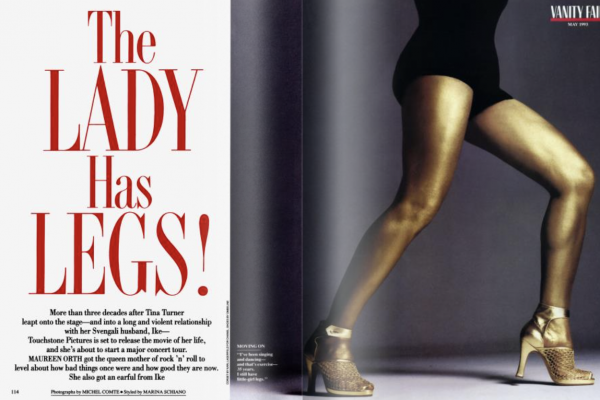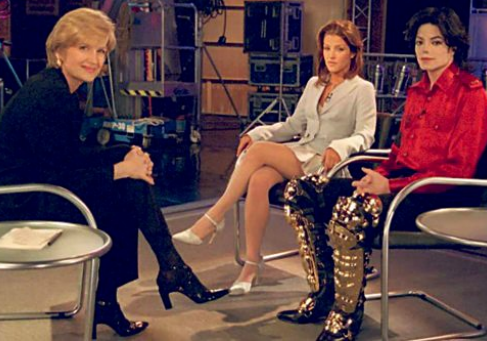Original Publication – The Village Voice, April 6 1972.
Okay Mouseketeers, here’s the comic strip of the week. The Air Pirates, four young rebel underground cartoonists, have the audacity to publish two comic books portraying the world’s richest rodent, Mickey Mouse, as a horny capitalist pig. Walt Disney’s solid gold Magic Kingdom is horrified and begins to plot revenge. Figuring that money can squelch infidels, they strategically scheme to send a simple process server to the opulent Victorian offices of the Air Pirates for over a half million dollars worth of copyright infringement.
The unsuspecting process server arrives to find chazam! pop! boom! five tv cameras, 20 eager reporters, microphones, tape recorders, flashbulbs, poised pencils, and the four Air Pirates – sporting Stetsons, chomping cigars, flashing Mickey Mouse badges – flanked by their coterie of freebie lawyers: chic and maybe radical Michael Kennedy in Cardin and Polo; 220-pound rugby star Michael Stepanian, “America’s foremost dope lawyer,” twirling his handmade patchwork bow tie; petite Ivy Leaguer David Phillips, three piece suit, shoulder length hair; and Albert Mores, esq, scion of a New York doughnut machine fortune, cartoon copyright expert, resplendent in thrift show blue serge, his long black beard nearly obscuring the gold chains hanging from his vest, and on his feet white loafers! Ever cool, Morse doesn’t bother to remove his bowler.
But wait, the unsuspecting process server is momentarily struck dumb. He hesitates, he steps back, he freaks appropriately to everyone’s delight, the press conference makes three tv news shows, and the Air Pirates win another round in the image war with Walt Disney.
The Magic Kingdom, fighting mightily to maintain the sanctity of its symbol, Mickey Mouse, charged seven separate copyright infringements against the four defendants, as well as $100,000 punitive damages each, plus trademark infringement, trade disparagement, and intentional interference with Disney business, all because of the Air Pirates’ version of “Silly Sympathies.”
Published by Hell Comics, “Nix Kids, Adult Only,” Mickey makes a cover appearance as the Red Baron, flying a cargo of dope and shooting a bazooka. Inside a carefully rendered vintage Mickey laments, “The whole world thinks I’m cute! So why won’t Minnie fuck me?” Sylvester Shyster pops out and commiserates, “Mickey Bubbala,” points a gun at Mickey’s head and throws him in a dungeon. Peg Leg Pete sneers “haw,” Zeke the Wolf exclaims “far fuckin’ out,” and the Phantom Blot answers Mickey’s charge that he’s the mastermind behind the plot. “Au contraire, you vociferous rodent. This is a collective effort.”
Another story shows Minnie Mouse catching Donald Duck peeping at her getting undressed. “You deviated pervert!” she screams and slams the window down on Donald’s four-fingered hands. And if that’s not enough, Bucky Bug and June Bug ball each other.
Disney should be turning over in his grave. Except the Air Pirates don’t think Disney’s buried at all, but frozen somewhere in Burbank “in suspended animation,” waiting to be revived when a cure to his cancer is found. Then he will rise up in perfect lockstep with his latest computerized robot of Abraham Lincoln from Disney World, and the whole Eastern Seaboard from Orlando northward will fly under the banner of Mickey Mouse!
The Air Pirates take Disney very seriously. They hate the traditional mawkish values they think he stands for and despise the plastic planned communities a la Disney World they are convinced Disney is going to try to build across the country. Their ringleader, Dan O’Neil, looks like an Irish cowboy. He used to have his own syndicated strip at age 21 where he parodied Disney occasionally, but after first knocking Goldwater in a strip in ’64, then introducing his characters to Magic Cookies which produced strange and wonderful visions, and finally doing a strip on the Marin County Courthouse shootout, 1970, Odd Bodkins was ended forever. “I am concerned with the image of the mouse that stuck in my head as a kid,” he explains. “Mickey Mouse is circulated in 118 countries and 35 languages. Disney has tremendous power. I want to understand why Mickey Mouse is one of the best know pejorative adjectives in the English language.”
Other Air Pirates remember Disney from painful childhood experiences. Bobby London is from New York and a card-carrying member of the Art Corner Animation Club of Disneyland. From the time he was three, Bobby’s parents, who really couldn’t afford it, showered him with hundreds of dollars of Disney schlock – Mickey Mouse t-shirts, Mickey Mouse coloring books, and Disney toys and games.
Then one day when he was eight or nine, Bobby saw a ‘30s version of the Three Little Pigs on television. In it the Big Bad Wolf disguised himself as a Jewish moneylender while attempting to get into Practical Pig’s house. “Let me in, I vant to help you,” sneered the Big Bad Wolf. Bobby was confused and hurt. The Big Bad Wolf talked just like his Jewish grandfather. He didn’t understand. Why should the Big Bad Wolf be Jewish?
Ted Richards grew up in the South. His favorite stories were Joel Chandler Harris’s tales of Uncle Remus. When he saw Disney’s “Song of the South” was was struck by the way Disney altered the author’s work. “Uncle Remus was always a friend of the ‘poor white trash’ kids in the original Joel Chandler Harris,” said Richards. “But Disney makes him the friend of a clean little middle-class boy, and teaches the little boy Brer Rabbit tricks. Then the little boy tells the poor kids, who end up getting whipped. Disney humiliates the poor kids, and in ‘Song of the South’ Uncle Remus condones it. Disney’s Remus claims to represent a major American mythology, but he doesn’t.”
“Disney’s not even into Mickey Mouse any more,” London claims. “They’re tripping on Tomorrowland now. Disney has research contracts with the government, and Disney World is their testing ground for new inventions and patents. Sometime in the future Disney’s plastic robots are going to walk. They’re really scary. From a distance they look just like real people.”
“I see Disney as the spirit of the American entrepreneur,” says another Pirate, Gary Hallgren. “Mickey’s super clean, super small town, and always wins – not because he’s smart, but because he’s lucky.”
Walt Disney didn’t relay completely on luck. When pressed for his secret formula of achievement, he was fond of quoting the four c’s of success: CURIOSITY, CONFIDENCE, COURAGE, AND CONSTANCY. The Disneyland theme song was “When You Wish Upon a Star” sung by Jiminy Cricket. Disney didn’t mention four alternate c’s that were of equal help during his long career: copping credit for other’s creations, co-opting authors’ stories and altering their original meaning, fastidious cleanliness of both hands and heart (Disney did have a proclivity toward baby bathroom jokes and an ass fixation – ever notice Tinker Bell’s behind?) and control, complete control over all parts of his profitable empire.
Disney was reportedly upset that the business which grew up around Disneyland in Anaheim were making more money than Disneyland itself. He vowed not to let the same thing happen in Florida’s Disney World where Disney controls a much larger land area, creating a virtual fiefdom in the middle of the state. The Disney Corporation also picks up $7 million a year from licensing its cartoon characters for product sales. If you wear a Mickey Mouse watch, Disney gets part of the profit.
In October ’70 Disney had total assets of $267.6 million. In spite of such wealth, the Disney suit against the Air Pirates charges the Air Pirates Funnies do “irreparable harm to Disney’s business,” a stunning claim considering the two Air Pirates comics had a total run of 40,000 and that when the suit came down the Air Pirates, living communally in a warehouse, were $4 overdrawn at the bank.
“For many years the Disney Corporation has devoted great effort and spent large sums of money to create, develop, and publicize cartoon characters who . . . as a result have acquired an image of innocent’ delightfulness,” read Disney’s suit. The defendants, on the other hand, portrayed the characters in a “lewd, offensive, degrading manner,” causing people “who would otherwise patronize Disney’s products not to do so,”
“Disney doesn’t understand the difference between piracy and parody,” charges Attorney Morse, as he waves affidavits in support of this case – affidavits from Mad magazine, Paul Krassner, art critics, and cartoon scholars asserting that the Air Pirates were merely parodying Disney, and that parody is a legitimate art form.
The Air Pirates’ attorneys figure Disney sued just to stop the cartoonists from publishing anymore funnies. Disney never figured that underground kids would fight back with such hoopla. The publicity surrounding the case has already embarrassed the Disney empire.
Some who avidly follow cartoon copyright law feel Disney didn’t have any choice but to sue. Bill Blackbeard, director of the San Francisco Academy of Comic Art, said that if the Disney Corporation doesn’t respond to everything it feels is a copyright violation, it becomes harder to fight violations the next time.
It is clear the Air Pirates are parodying Disney,” Blackbeard said, “but no one has used Mickey Mouse’s and Donald Duck’s real names before. The National Lampoon recently parodied Dick Tracy using his real name and Chester Gould didn’t sue, so it’s going to be tougher for Disney to prove it’s case.”
The only other suit like this anyone can remember is one several years ago when Disney sued Joel Beck, who had done a center-fold-out poster of Daisy Duck. The suit fell through because Disney didn’t acknowledge Daisy Duck had teats. Beck’s Daisy did.
Whether the Air Pirates win or lose – the case is now under submission to the court – O’Neil insists he’ll keep drawing Mickey Mouse. “I’m what you might call a mouse junkie,” O’Neill claims. “Even if they put me in jail I’ll draw on the walls. Only right now there’s a 50-ton mouse stepping on my fingers.”
This article is typed from the original material. Please excuse any errors that have escaped final proofreading.


